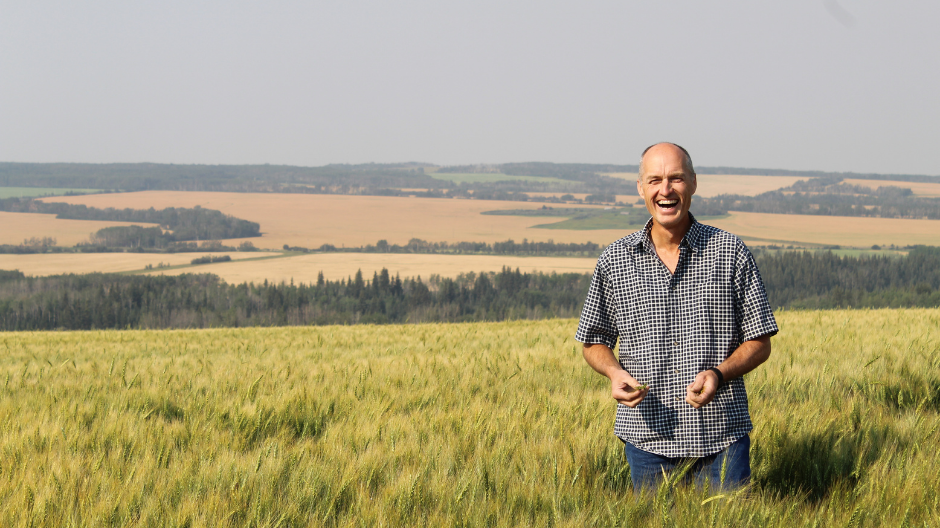
BC Grain Farmer
Rick Kantz has been growing grain and oilseeds in the Peace Region for the last 25 years. He was born and raised on the farm and is proud to have a role in providing food for the population. With up to 5,000 acres (2,023 hectares) of land under his care, there is a big responsibility to ensure that their natural resources are managed sustainably. Read our interview with Rick below.
Tell us about your grain farm in Northern B.C.
Rick Kantz: I farm with my brother-in-law just North of Fort St. John, B.C. Between our owned land and rented land, we farm about 4,000 to 5,000 acres each year. To manage that land, we have one full-time employee year-round, but we also hire some people who help with planting in the spring and harvest in the fall. Canola is our main crop, and it makes up about 30-50% of what we grow each year. The rest is wheat and barley (some of which is malting barley that can be used by local breweries).
What kind of technology do you use on your farm?
RK: We have lots of large, specialized equipment that helps us to work the land: tractors, planters, combines, etc. When we drive that equipment, we use GPS technology to help us know exactly where we are in the field, and to map the areas that we have already covered. Along with GPS, we can turn off certain sections of the planter or sprayer so that we don’t “double-up” (e.g., plant twice as much seed as is needed). This really has helped us to be more efficient and to only apply what is needed, where it is needed.
As a farmer, what do you do to care for the environment?
RK: The soil is our livelihood so we do everything we can to keep it healthy. We have been no-till for over 20 years, which means that we do not plow or break up the soil each year. That helps in a lot of ways, because it reduces the potential for topsoil to erode, it helps to store carbon, and it also reduces the amount of fuel we use. My parents used to have to go over a field with the tractor several times, plowing and discing to get it ready to plant; we only go in once. We need the soil to be there for generations to come to feed the population, so environmental stewardship is top of mind for us.
What is your favourite thing about farming?
RK: I was born and raised on the farm, so it is in my blood. But I love it because it is a great lifestyle, and you have the freedom that comes with running your own business. Farming is special because you are helping everybody out. You are producing food for the world.
